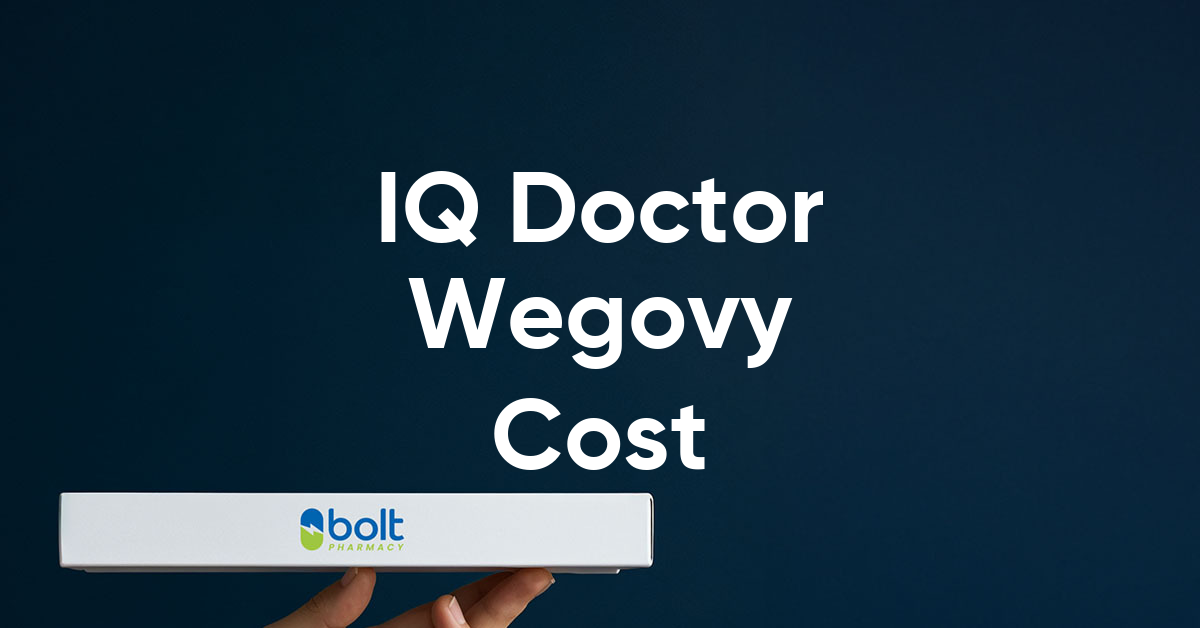Wegovy (semaglutide 2.4 mg) is an MHRA-licensed once-weekly injectable medicine for chronic weight management in adults with obesity or overweight with weight-related health conditions. As a GLP-1 receptor agonist, it works by suppressing appetite, delaying gastric emptying, and reducing food cravings. Whilst NHS access follows strict NICE criteria through specialist services, private provision offers broader eligibility and potentially quicker access. Understanding the costs, clinical requirements, and service components of private Wegovy treatment is essential for informed decision-making. This article examines pricing structures, what's included in private services, and how NHS and private pathways compare.
Summary: Private Wegovy treatment typically costs £150–250 per month depending on dose, with first-year total costs ranging from £2,400–3,500 including consultations and ongoing clinical monitoring.
- Wegovy (semaglutide 2.4 mg) is a GLP-1 receptor agonist licensed by the MHRA for chronic weight management in adults with obesity or overweight with comorbidities
- The medication works by suppressing appetite, delaying gastric emptying, improving insulin secretion, and reducing food cravings through GLP-1 receptor activation
- Common adverse effects include gastrointestinal symptoms (nausea, diarrhoea, vomiting) particularly during dose escalation, with rare risks including pancreatitis and gallbladder disease
- NHS access follows strict NICE criteria (BMI ≥35 kg/m² with comorbidities) through specialist weight management services, whilst private provision offers broader eligibility (typically BMI ≥30 kg/m²)
- Private services include comprehensive clinical pathways with initial assessment, dose titration over 16–20 weeks, regular monitoring, and ongoing support from registered healthcare professionals
- Treatment requires ongoing medical supervision through CQC-registered providers using GPhC-registered pharmacies, and is contraindicated in pregnancy and hypersensitivity to semaglutide
Table of Contents
What Is Wegovy and How Does It Work?
Wegovy (semaglutide 2.4 mg) is a once-weekly injectable prescription medicine licensed by the MHRA for chronic weight management in adults with obesity (BMI ≥30 kg/m²) or overweight (BMI ≥27 kg/m²) with at least one weight-related health condition. It belongs to a class of medications called glucagon-like peptide-1 (GLP-1) receptor agonists, originally developed for type 2 diabetes management but now recognised for significant weight loss effects.
The mechanism of action centres on mimicking the natural hormone GLP-1, which is released from the gut after eating. Semaglutide binds to GLP-1 receptors in multiple tissues, producing several complementary effects:
-
Appetite suppression through actions on brain regions controlling hunger and satiety
-
Delayed gastric emptying, promoting earlier and longer-lasting feelings of fullness
-
Improved insulin secretion and reduced glucagon release, helping regulate blood glucose
-
Reduced food cravings and preoccupation with eating
Clinical trials have demonstrated that Wegovy, when combined with a reduced-calorie diet and increased physical activity, leads to an average weight loss of approximately 12–15% of initial body weight over 68 weeks. This represents substantially greater weight reduction compared to lifestyle interventions alone.
Common adverse effects include nausea, diarrhoea, vomiting, constipation, and abdominal discomfort, particularly during dose escalation. These gastrointestinal symptoms typically diminish over time as the body adjusts. More serious but rare risks include pancreatitis and gallbladder disease (patients should be alert to symptoms such as severe persistent abdominal pain).
Wegovy is contraindicated in pregnancy and hypersensitivity to semaglutide or any excipients. It should be stopped at least 2 months before a planned pregnancy. Caution is needed in patients with diabetic retinopathy and those taking insulin or sulfonylureas (risk of hypoglycaemia). Adequate hydration should be maintained to reduce the risk of acute kidney injury if severe gastrointestinal effects occur. Wegovy should not be used alongside other GLP-1 receptor agonists or weight-loss medicines.
Patients should report any suspected side effects to the MHRA Yellow Card Scheme (yellowcard.mhra.gov.uk).
What's Included in Private Wegovy Services?
Private weight management services typically provide a comprehensive clinical pathway rather than simply dispensing medication. A structured service model ensures patient safety, appropriate prescribing, and ongoing monitoring throughout treatment.
The initial consultation process generally includes:
-
Detailed medical history review to identify contraindications, assess suitability, and screen for conditions that may affect treatment (thyroid disorders, pancreatitis history, eating disorders)
-
Body mass index (BMI) calculation and assessment of weight-related comorbidities such as type 2 diabetes, hypertension, dyslipidaemia, or obstructive sleep apnoea
-
Baseline measurements including weight and blood pressure, with any blood tests tailored to individual clinical need rather than routinely required for all patients
-
Lifestyle assessment covering dietary habits, physical activity levels, and previous weight loss attempts
-
Treatment goal setting with realistic expectations about weight loss trajectory and timescales
Ongoing support throughout the treatment journey typically encompasses:
-
Regular clinical reviews (often monthly initially, then quarterly) to monitor progress, assess tolerability, and adjust dosing
-
Access to healthcare professionals via secure messaging or telephone for questions or concerns
-
Guidance on injection technique, storage, and managing side effects
-
Nutritional advice and behavioural support to optimise lifestyle modifications
-
Monitoring for adverse effects and complications requiring intervention
Most services follow the licensed dose escalation schedule, starting at 0.25 mg weekly and gradually increasing over 16–20 weeks to the maintenance dose of 2.4 mg weekly. This gradual titration minimises gastrointestinal side effects. If side effects are problematic, slower titration may be appropriate, and some patients may remain on 1.7 mg if 2.4 mg is not tolerated. Prescription delivery is usually arranged directly to the patient's home, with temperature-controlled packaging to maintain medication stability.
Services should provide sharps disposal containers and advice on injection site rotation, safe storage, and not sharing pens with others. Patients should verify that their chosen provider is registered with the Care Quality Commission (CQC) and uses General Pharmaceutical Council (GPhC) registered pharmacies, as safe weight management requires appropriate clinical oversight.
NHS vs Private Wegovy: Comparing Your Options
Access to Wegovy differs substantially between NHS and private pathways, reflecting resource constraints and eligibility criteria designed to prioritise those with greatest clinical need.
NHS Wegovy provision follows strict NICE guidance (TA875) published in March 2023, which recommends semaglutide 2.4 mg for weight management only within specialist weight management services for adults with:
-
BMI ≥35 kg/m² and at least one weight-related comorbidity (such as type 2 diabetes, hypertension, dyslipidaemia, obstructive sleep apnoea, cardiovascular disease), or
-
BMI usually ≥32.5 kg/m² (2.5 kg/m² lower than the standard threshold) in people from South Asian, Chinese, other Asian, Middle Eastern, Black African, or African-Caribbean backgrounds (due to higher cardiometabolic risk at lower BMI thresholds)
NHS treatment is accessed through specialist weight management services rather than primary care, with referral pathways varying by integrated care board (ICB). Patients must demonstrate engagement with intensive behavioural support programmes before medication is considered. Treatment is discontinued if less than 5% weight loss is achieved after 6 months. NICE specifies a maximum treatment duration of 2 years within specialist services.
NHS availability may be limited in some areas. Access to specialist weight management services varies geographically, and waiting times can be significant in some regions.
Private provision offers several potential advantages:
-
Broader eligibility criteria (typically BMI ≥30 kg/m², or ≥27 kg/m² with weight-related comorbidities)
-
Potentially quicker access without waiting for specialist referral
-
Flexible appointment scheduling including evenings and weekends
-
Continuity of care with consistent clinical teams
The primary disadvantage is cost, which patients must fund entirely themselves. Private treatment may be appropriate for individuals who meet clinical criteria but cannot access NHS services within a reasonable timeframe, or those who fall outside NHS eligibility thresholds but would still benefit clinically from treatment. Patients should ensure any private provider follows evidence-based protocols aligned with MHRA licensing and professional guidelines.
Wegovy Cost Through Private Services: Pricing and Payment Options
Understanding the financial commitment involved in private Wegovy treatment is essential for informed decision-making, as this represents a significant ongoing expense for most patients.
Private Wegovy costs typically comprise several components:
-
Initial consultation fee (usually £50–150) covering medical assessment, eligibility determination, and treatment planning
-
Monthly medication cost varying according to dose during the titration phase and maintenance treatment
-
Follow-up consultation fees for ongoing monitoring and prescription renewals
-
Blood test costs if required for baseline or monitoring purposes
-
Additional costs may include needles, sharps disposal containers, and delivery charges (patients should confirm what is included)
As of early 2024, indicative private pricing generally ranges from:
-
Titration doses (0.25 mg, 0.5 mg, 1.0 mg, 1.7 mg): approximately £150–220 per month
-
Maintenance dose (2.4 mg): approximately £200–250 per month
These prices vary between providers and may change with market conditions and supply availability.
Total first-year costs typically range between £2,400–3,500, depending on the service model, consultation frequency, and any additional support included. Patients should budget for ongoing treatment, as weight regain commonly occurs following discontinuation. While NICE specifies a maximum of 2 years treatment duration for NHS provision, the optimal duration of private treatment should be discussed with your healthcare provider. Evidence for effectiveness beyond 2 years is more limited.
Some private providers offer:
-
Subscription models with monthly direct debit payments including medication and consultations
-
Bundled packages covering multiple months at reduced rates
-
Flexible payment plans to spread costs more manageably
Patients should carefully review what is included in quoted prices—specifically whether consultation fees, delivery charges, and clinical support are incorporated or charged separately. Transparent pricing with no hidden costs is a hallmark of reputable services.
It is worth noting that Wegovy is not available over the counter and requires ongoing medical supervision. Patients should be cautious of services offering significantly below-market pricing, as this may indicate inadequate clinical oversight or unregulated supply chains. Treatment should only be obtained through registered UK healthcare providers operating within MHRA and Care Quality Commission (CQC) frameworks. Patients experiencing financial difficulty should discuss options with their GP regarding potential NHS pathways or alternative evidence-based weight management approaches.
Scientific References
- Wegovy 0.25 mg, FlexTouch solution for injection in pre-filled pen - Summary of Product Characteristics (SmPC).
- Wegovy (semaglutide) - European Public Assessment Report (EPAR).
- Semaglutide for managing overweight and obesity. Technology appraisal guidance [TA875].
- Once-Weekly Semaglutide in Adults with Overweight or Obesity.
Frequently Asked Questions
How much does private Wegovy treatment cost per month?
Private Wegovy costs typically range from £150–220 per month during dose titration and approximately £200–250 per month at the maintenance dose of 2.4 mg. Total first-year costs generally range between £2,400–3,500 including consultations and ongoing clinical monitoring.
What is included in private Wegovy services?
Private services typically include initial medical assessment, BMI calculation, baseline measurements, regular clinical reviews, access to healthcare professionals for support, injection technique guidance, nutritional advice, and home delivery of medication. Patients should verify what consultation fees, delivery charges, and clinical support are included in quoted prices.
Can I get Wegovy on the NHS instead of paying privately?
NHS Wegovy is available through specialist weight management services following NICE guidance for adults with BMI ≥35 kg/m² and weight-related comorbidities, or BMI ≥32.5 kg/m² for certain ethnic groups at higher cardiometabolic risk. Access requires referral to specialist services and may involve waiting times, with availability varying by integrated care board.
The health-related content published on this site is based on credible scientific sources and is periodically reviewed to ensure accuracy and relevance. Although we aim to reflect the most current medical knowledge, the material is meant for general education and awareness only.
The information on this site is not a substitute for professional medical advice. For any health concerns, please speak with a qualified medical professional. By using this information, you acknowledge responsibility for any decisions made and understand we are not liable for any consequences that may result.
Heading 1
Heading 2
Heading 3
Heading 4
Heading 5
Heading 6
Lorem ipsum dolor sit amet, consectetur adipiscing elit, sed do eiusmod tempor incididunt ut labore et dolore magna aliqua. Ut enim ad minim veniam, quis nostrud exercitation ullamco laboris nisi ut aliquip ex ea commodo consequat. Duis aute irure dolor in reprehenderit in voluptate velit esse cillum dolore eu fugiat nulla pariatur.
Block quote
Ordered list
- Item 1
- Item 2
- Item 3
Unordered list
- Item A
- Item B
- Item C
Bold text
Emphasis
Superscript
Subscript












